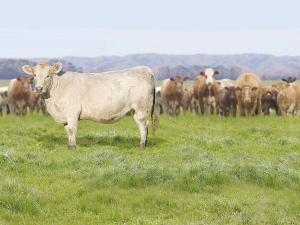New research shows that New Zealand sheep and beef farms are already offsetting the majority of their agricultural emissions.
The study led by Bradley Case, a senior lecturer from Auckland University of Technology applied ecology department, estimates that the woody vegetation on the country’s sheep and beef farms offsets between 63 and 118% of their on-farm agricultural emissions.
The research was funded by Beef + Lamb New Zealand and peer reviewed by chief scientist at Landcare Research, Fiona Carswell, and senior ecologist at the University of Canterbury, Adam Forbes.
If the mid-point in the report’s range is used, on average the woody vegetation on NZ sheep and beef farms is absorbing about 90% of these emissions, meaning they are close to being carbon neutral.
Case said, given the outcome, there was strong case for giving farmers credit for the carbon already being stored on their farms
Beef + Lamb New Zealand chief executive Sam McIvor says greenhouse gas emissions from New Zealand sheep and beef production have reduced by 30% since 1990.
“This research shows that, of the remaining emissions, the vast majority are being offset by the trees on our farms and New Zealand sheep and beef farmers are well on the way to being carbon neutral by 2050.”
McIvor says the study reinforces the importance of farmers getting formal recognition for the sequestration happening on their farms.
“Currently, most vegetation on sheep and beef farms does not qualify for inclusion in the ETS because it does not meet the definition of a forest. If farmers are to face a price for agricultural emissions, it’s only fair they get credit for their sequestration,” he adds.
“The focus to date on livestock’s climate change contribution has been on emissions, rather than on sequestration. But with any product it makes sense to consider the whole business – in this case, taking a whole of farm approach.”
McIvor also believes this research will also reassure consumers that New Zealand beef and lamb is among the most sustainable in the world.
“It proves that our farmers are making a significant contribution to addressing on-farm agricultural emissions.”
Case says this research not only builds an understanding of the overall greenhouse gas contribution of the sheep and beef sector, but will also help inform the development of policy, and further reinforce the outstanding biodiversity on sheep and beef farms.”
According to the AUT report, the woody vegetation is made up of 1.52 million hectares of native forest and 0.48 million hectares of exotic vegetation.
Meanwhile, Case says the net carbon emissions estimation assumed a net-neutral rate for soil sequestration and the amount of sequestration happening could be even greater.
“While there is fairly good information about soil carbon stocks, there is not good data about yearly changes in soil sequestration and the science on this is still in development.”











